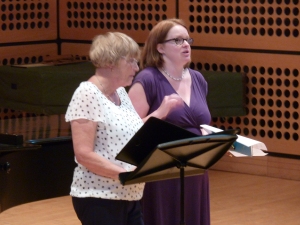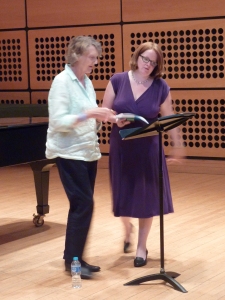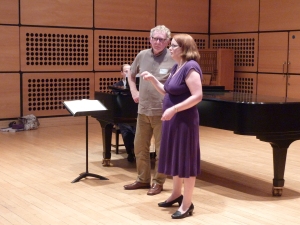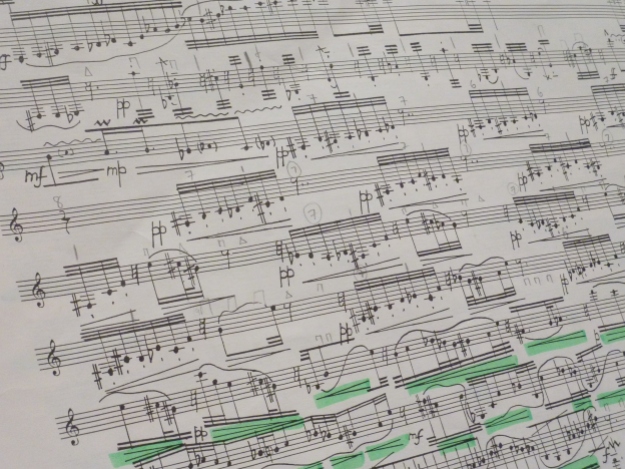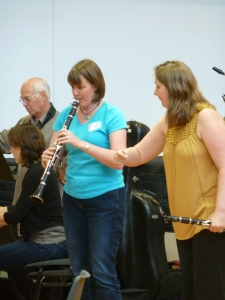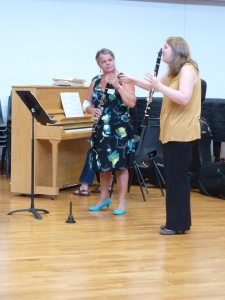The Summer School short concerts by visiting musicians, and the masterclasses each of them  gave, were a different experience for those of us who sing or play regularly with Music for Everyone. They enabled us not only to hear wonderful performances but to then learn how to improve our own technique and performance.
gave, were a different experience for those of us who sing or play regularly with Music for Everyone. They enabled us not only to hear wonderful performances but to then learn how to improve our own technique and performance.
Carris, a mezzo-soprano, read history at Cambridge while also singing as a choral scholar with the excellent Trinity College choir. Afterwards she studied singing and performance at the Royal Academy. She performed Robert Schumann’s song-cycle Frauenliebe und Leben for us with great expression and to the delight of the audience. Timothy Uglow accompanied her with great sensitivity. Such a beautiful performance that emphasised again points made by many of the tutors – the importance of posture, facial expression and engaging the audience.
Four singers (apologies if I missed anyone, I slipped out to the strings for a time), bravely sang their solo pieces to the whole choir. Carris helped each of them points of difficulty in the music or their vocal technique, be that breath control, enunciation or performing rather than singing the notes. The difference Carris’s suggestions made could be heard as the delegates sang again some or all of their pieces. Inspirational, and a big bravo to them all!
Joan, Jeanne (whose hand Carris is holding to swing at the breathing points!), Catherine and Paul.
Helena
